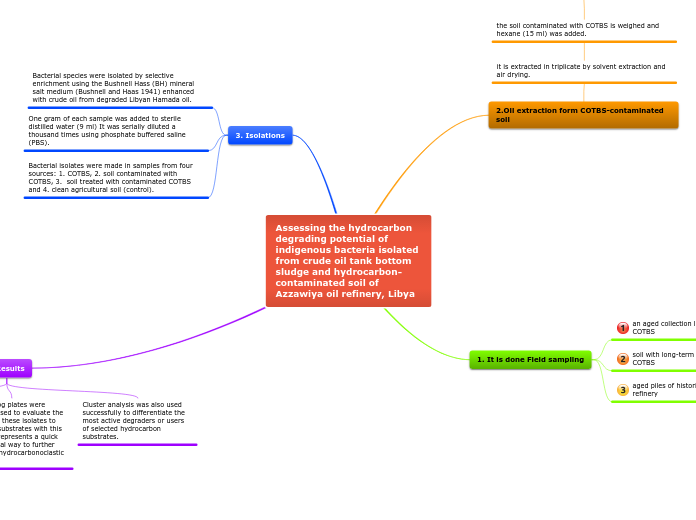Assessing the hydrocarbon degrading potential of indigenous bacteria isolated from crude oil tank bottom sludge and hydrocarbon-contaminated soil of Azzawiya oil refinery, Libya
4.Results
Cluster analysis was also used successfully to differentiate the most active degraders or users of selected hydrocarbon substrates.
The MT2 Biolog plates were successfully used to evaluate the capabilities of these isolates to use selected substrates with this method that represents a quick and economical way to further screen these hydrocarbonoclastic bacteria.
A rich indigenous hydrocarbonoclastic community of soil treated with contaminated COTBS, COTBS and soil contaminated with COTBS was identified using BH-Hamada crude oil agar plates.
3. Isolations
Bacterial isolates were made in samples from four sources: 1. COTBS, 2. soil contaminated with COTBS, 3. soil treated with contaminated COTBS and 4. clean agricultural soil (control).
One gram of each sample was added to sterile distilled water (9 ml) It was serially diluted a thousand times using phosphate buffered saline (PBS).
Bacterial species were isolated by selective enrichment using the Bushnell Hass (BH) mineral salt medium (Bushnell and Haas 1941) enhanced with crude oil from degraded Libyan Hamada oil.
1. It is done Field sampling
aged piles of historically treated soil at Azzawiya oil
refinery
you'll come up with original ideas
soil with long-term contamination by
COTBS
an aged collection lagoon of
COTBS
2.Oil extraction form COTBS-contaminated soil
it is extracted in triplicate by solvent extraction and air drying.
the soil contaminated with COTBS is weighed and hexane (15 ml) was added.
The oil in the soil is extracted by stirring for 20 min, followed by centrifugation for 5 min.

